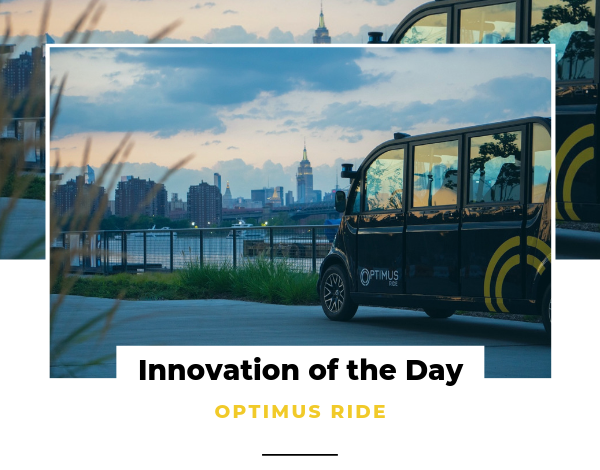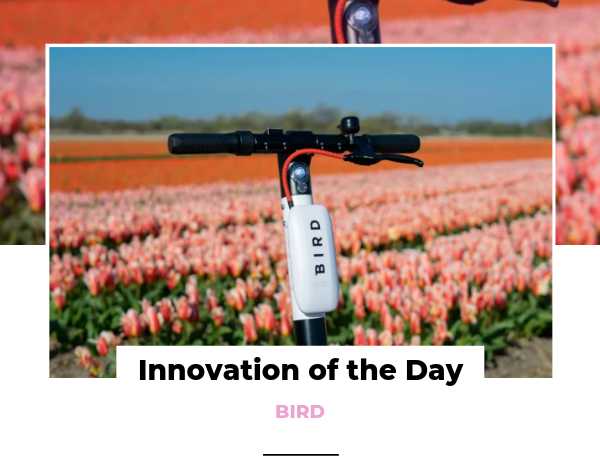
This is a Transport innovation from The 70 Best Trend-Driven Innovations of 2019.
Self-driving vehicle startup Optimus Ride have launched a free autonomous shuttle service for people who work at the Brooklyn Navy Yard. Over 10,000 people work at the 300-acre industrial complex; from this month, six self-driving vehicles will carry workers along a one-mile route between the NYC Ferry and the Yard’s Cumberland Gate. The vehicles will move at 15 miles per hour (24km/hr) and two human safety drivers will be present on all vehicles. Optimus Ride say they hope to be able to phase out the safety drivers by 2020. The service is expected to carry around 16,000 passengers a month.
Sure, it will be a while before Optimus Ride vehicles are ready to join the controlled chaos that is NYC traffic. But you can still take immediate inspiration. At the heart of this innovation are two universal and related imperatives: validation and acceptance.
Validation. For autonomous vehicle (AV) companies, public roads are the holy grail. But we’re not there yet. That means those startups have had to be innovative about alternative ways to validate their offering. This new service at the Brooklyn Navy Yard allows Optimus Ride to demonstrate the ability of their AVs to provide a safe, useful service in a simple traffic environment. Similarly, AV startup Voyager is trialling its vehicles in retirement communities. Sure, you don’t make driverless cars, but this is still a strategy you can learn from. What is the perfect space, context or environment in which you can test and validate an offering that’s still in development?
Acceptance. Getting self-driving cars on the open road isn’t just a technical challenge. It’s also about overcoming public resistance to the idea. Sure, the Brooklyn Navy Yard service will allow Optimus Ride to collect data and prove safety to regulators. But it also has a strong soft power component; it will do much to familiarise an estimated 16,000 monthly riders, and other New Yorkers who just hear about the test, with the idea of self-driving cars. Your offering is probably not as controversial. However there are still people out there who are unsure about you or resistant to what you do. How could a trial in an entirely new context or space help win those people over?
Want to receive B2C innovations, every weekday, straight to your inbox?
Received daily by 100k+ business professionals in 180+ countries.

Related innovations






